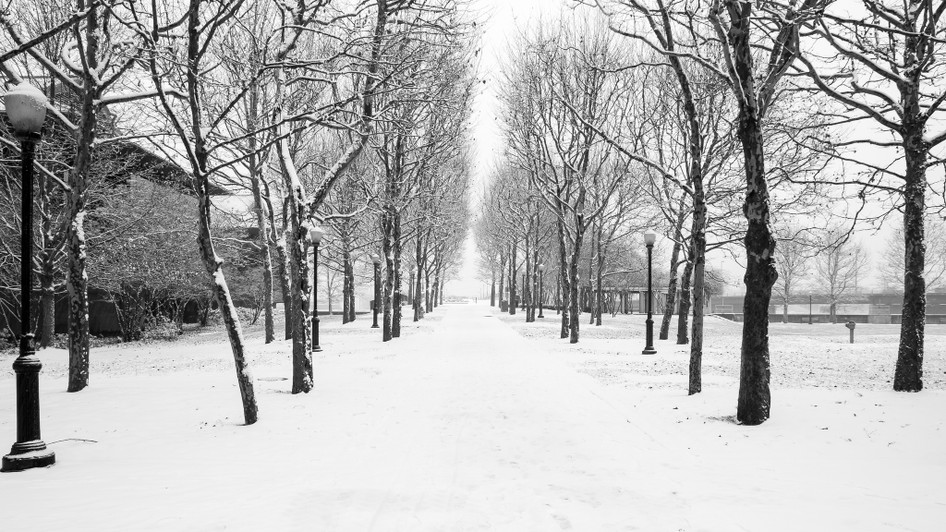What is a Pennsylvania or New Jersey property owner’s obligation to remove snow and ice from their property during the winter months? If an injury occurs on someone else’s property because the owner failed to clear snow or ice, is the owner liable for the damages? We break down the New Jersey and Pennsylvania laws so that property owners and patrons may have a better understanding of their situation in the event of an accident this season.
It’s that time of the year again when winter storms start to hit the Tri-state area and leave significant amounts of snow and ice on the pavements of many property owners throughout Pennsylvania and New Jersey. Snow and ice conditions are one of the leading causes of slip and fall injuries during the winter. Property owners and those who are injured due to slipping on ice and snow should be aware of the law that exists in both Pennsylvania and New Jersey. Generally speaking, the first thing to determine is whether the property owner has a duty. Once it is determined that the property owner does have a duty to clear the sidewalk pertaining to his/her property, the next thing to establish is whether the property owner exercised the proper care in clearing the snow and ice.
New Jersey Law
According to New Jersey law, in order to establish that you have a case for liability in a slip and fall case due to snow and ice, only one of the following three things must be shown:
- The property owner had a legal duty to remove or warn about the risk of snow and ice on the sidewalk, and in failing to carry out that duty, caused the dangerous condition, or
- The property owner knew about the dangerous condition and did nothing to remove it, or
- The property owner should have known about the dangerous condition because it would have been obvious to a reasonable person who would have corrected the condition that caused the accident.
Duty of Property Owners:
Under New Jersey law, a residential property, such as a single family home, is almost never liable for these types of injuries because there is no duty to remove or warn about the risk of ice or snow on the sidewalk that has been caused naturally. However, a residential property owner may be held liable where the owner made the dangerous condition worse.
On the other hand, commercial enterprises and multiple dwellings, such as apartments and condo complexes, do not enjoy this same “no duty” rule. The general rule in New Jersey is that it must be shown that the property owner knew or at least should have known about the dangerous condition, and a failure to act on that dangerous condition caused an unreasonable risk of harm. If the dangerous condition was foreseeable because of the nature of the property owner’s business, then it doesn’t have to be shown that the property owner knew or should have known. For example, a commercial enterprise, such as a one of the shopping malls in New Jersey, invites people onto their property and therefore bears the duty of exercising ordinary and reasonable care in keeping the area safe.
Pennsylvania Law
Under Pennsylvania law, in order to establish a case for slip and fall injury due to snow or ice, the injured person must show that the property owner knew or should have known about the dangerous condition, and failed to exercise reasonable care in making the condition safe or providing warnings about the condition.
Duty of Property Owners:
In accordance with Pennsylvania law, property owners have up until 24 hours (or a reasonable amount of time) after the snow stops falling to start to make the dangerous condition safe or provide a warning. These types of cases require evidence that the property owner had reasonable time to be able to correct the dangerous condition caused by the snow and ice. This requirement exists because it would place an impossible burden on property owners to keep their premises cleared at all times, even while the snow is still falling and accumulating.
Property owners are required to exercise a duty of care when the accumulation reaches a stage in which hills and ridges of snow and ice are formed. This is known in Pennsylvania as the Hills and Ridges Doctrine, which has three elements that must be shown:
- The snow and ice accumulated so much that it unreasonably obstructed travel
- The property owner knew or should have known about the conditions
- The snow and ice is what caused the plaintiff to slip and fall
This doctrine does not apply to a situation where the fall was caused by a property owner’s neglect, such as a clogged storm drain or a defective gutter.
If you are a business or store owner that opens your business to the public, you have a duty to keep your premises in a reasonably safe condition by inspecting your premises and looking for obvious and hidden defects. This inspection ranges from the sidewalks to the parking lots.
Robert Flacco
Marrone Law Firm, LLC
Law Clerk


